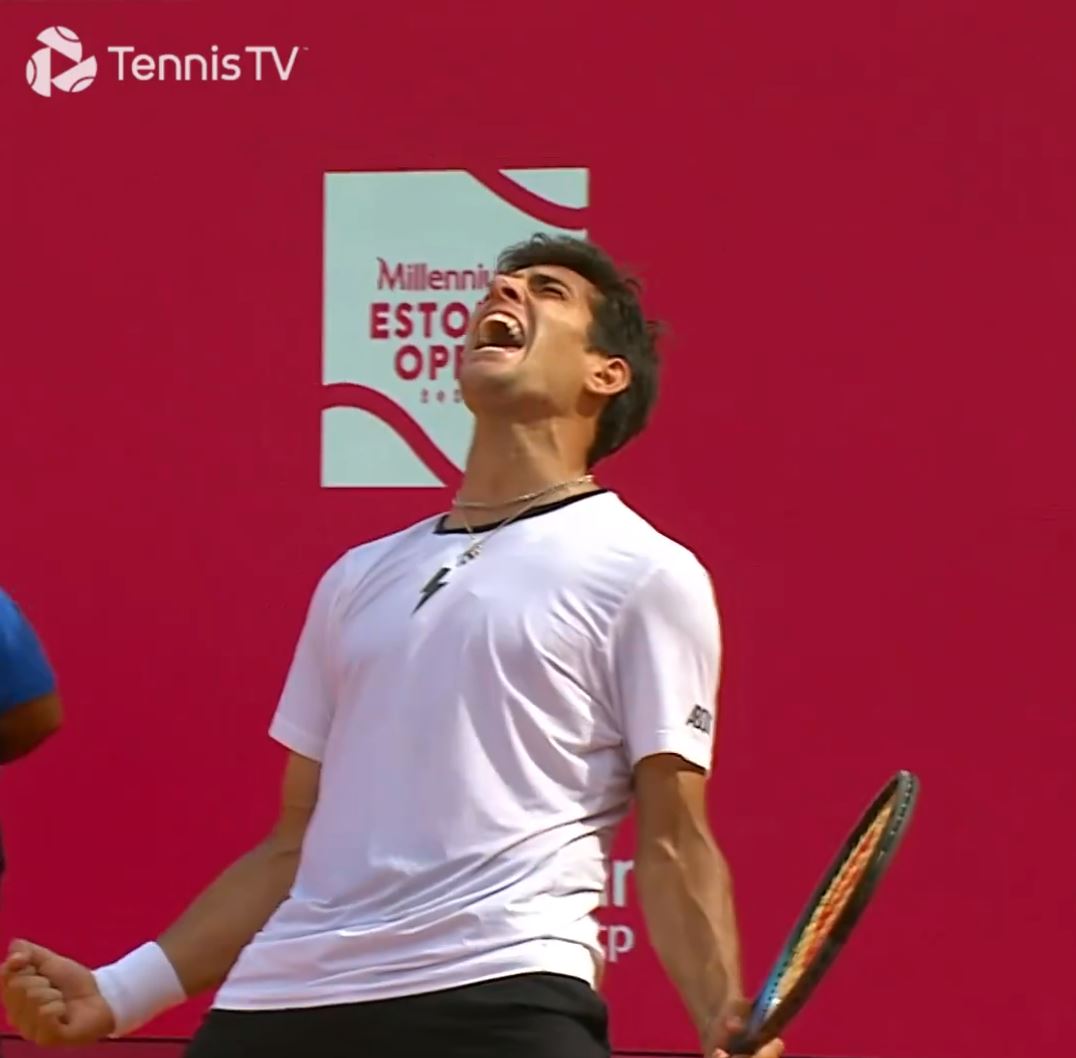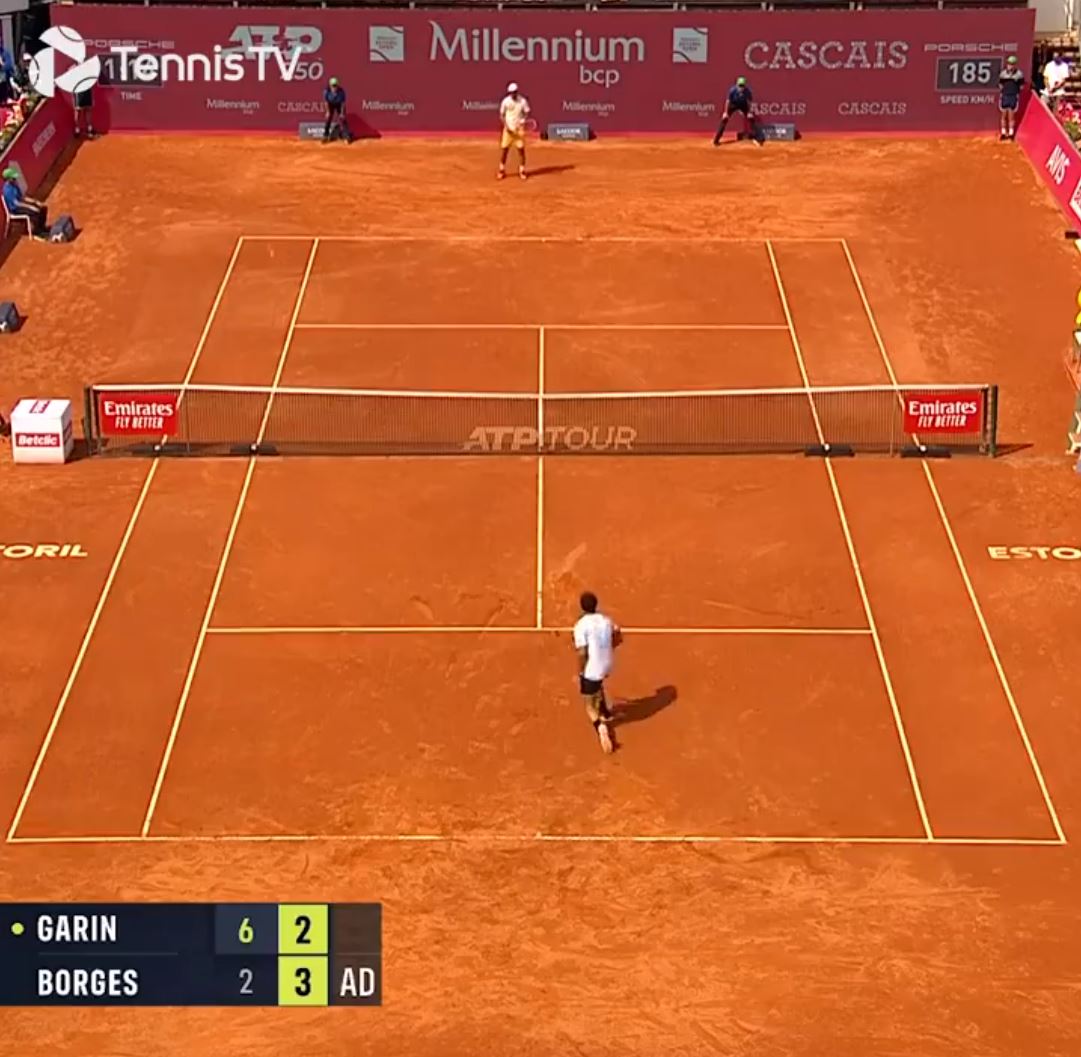Controversial Call Causes Uproar
An ex-Wimbledon quarter-finalist, Nuno Borges, faced boos from the crowd for what was deemed a 'ridiculous' celebration following a controversial win against Cristian Garin at the Estoril Open in Portugal. The umpire's decision to award a point to Garin after a ball was called out prompted a wave of protests, with Borges arguing vehemently against the call.
Umpire's Decision Sparks Outrage
During a critical moment in the match, umpire Christian Rask awarded a point to Garin, despite the crowd's disagreement and Borges' protests. The decision led to a heated exchange between Borges and the umpire, with Borges questioning the fairness of the call and suggesting a replay of the point.
Backlash and Criticism
Following the match, fans took to social media to express their outrage over the umpire's decision and Garin's subsequent celebration. Many criticized the sportsmanship displayed by Garin and called for repercussions against the umpire for the controversial call. Tennis journalist Gaspar Riberio Lanca labeled Garin's celebration as 'ridiculous' given the circumstances.
What's Next
Garin is set to face No2 seed Hubert Hurkacz in the semi-final, while defending champion Casper Ruud competes against Pedro Martinez. The final of the Estoril Open is scheduled for tomorrow, where the champion will be crowned amidst the ongoing controversy surrounding the tournament.

Frequently Asked Questions
How important are mental and psychological factors in tennis training for you?
Mental and psychological preparation is just as important as physical preparation in tennis. The player must be able to control stress, maintain concentration, and manage the emotional highs, and lows, of competition. Visualization, goal-setting and mental rehearsals can be common techniques. Working with a sport psychologist can help players develop resilience, learn coping techniques for pressure situations and improve their mental performance to match their physical abilities on the court.
What kind of fitness training is essential for tennis players
Tennis is physically demanding and requires a mixture of aerobic endurance, strength and power. Tennis players are often required to do cardiovascular exercises in order to improve their endurance. They also need to perform plyometrics, explosive exercises, and weight training exercises in order to gain strength. Exercises that improve core stability and balance are essential to building the endurance and coordination needed for tennis.
What role does video analysis play in training top tennis players?
Video analysis is a critical tool for training and developing top tennis players. It is a great tool for reviewing technique, tactics and patterns of opponents. Video analysis is used by coaches and players to analyze strokes, identify areas of improvement and strategize for future opponents. The video analysis helps to identify habits and tendencies which may be overlooked during intense competitions, and allows for more efficient and targeted practice sessions.
What kind support team do top tennis players need?
A top tennis player needs a robust support team to compete at the highest levels. The team will typically include a head trainer to oversee the training and technical development of the player, a fitness coach for physical conditioning and injury prevention, a medical professional or physiotherapist for injury management and prevention, a sports psychology specialist for mental coaching and a nutritionist for diet advice. A hitting partner, an agent or manager, and sometimes a “stringer” can be included in the team to ensure the player is able to concentrate solely on their game.
When can a player start training to improve their chances of becoming a pro?
While there is no set age to begin training for professional tennis, starting at a young age does provide an advantage. Many professional players start their training between ages 4-7. Early development helps players build a strong foundation in terms of technique, skills and coordination. But it’s also important to maintain a balance between training and childhood development, to encourage a love of the sport without burnout or injury.
Statistics
- Research indicates that junior tennis players who compete in international tournaments gain significant psychological advantage and experience, with participation leading to a 50% better transition into professional rankings.
- Studies show that superior agility and speed among tennis players can reduce their reaction time by up to 30%, which is crucial during high-level matches.
- Strength and conditioning coaches emphasize core strength, noting that an increase in core stability can improve shot accuracy by up to 43%.
- Engaging in structured video analysis sessions has been shown to improve a player’s tactical decision-making by approximately 35%.
- Statistical trends indicate that top tennis players usually have at least 5 people in their support team, including coaches, fitness trainers, and physiotherapists.
External Links
essentialtennis.com
myprocoach.net
itftennis.com
usta.com
optimumtennis.net
- Tennis Training Optimum
How To
How to Recover Effectively After Tennis Workouts
Effective recovery after intense tennis workouts is essential for preventing injury and preparing your body for the next session. Start with a cooling-down phase, which includes light cardio exercises to lower your heartrate gradually. Static stretching will promote flexibility and help reduce muscle tension. You can use recovery techniques, such as foam-rolling or massages, to reduce muscle soreness. They also help remove lactic acids. Hydration is key; replace the fluids you lose during exercise and replenish any electrolytes that may be lost. You should also eat carbohydrates and protein after your workout to help repair and restore muscle glycogen. Rest days should be included in your training program to allow for full recovery.

